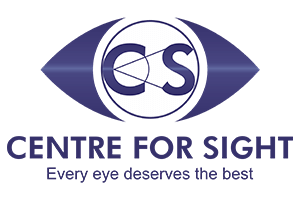Cataract surgery is a widely performed procedure that involves replacing the eye’s cloudy lens with a clear artificial one. However, sufficient care and rest after the surgery are crucial for a smooth recovery.
Proper post-surgery care helps prevent complications and supports long-term vision improvement. From understanding the dos and don’ts after cataract surgery to managing common symptoms and knowing when to seek help, following the right steps at home is essential.
This blog will provide a detailed guide on care after cataract surgery, covering everything from cleaning your eyes to safe activities you can enjoy after a safe and speedy recovery.
Understanding the Recovery Process.
What to Expect After Surgery:
After cataract surgery, it’s completely normal to experience mild discomfort, some itching, and temporary blurred vision as your eyes begin to heal. You may also notice increased sensitivity to light, but rest assured, these sensations typically improve each day. However, you should consult your eye doctor if there’s prolonged discomfort or you’re worried.
Timeline for Recovery:
Your initial recovery will occur within 24 to 48 hours, and taking this time to rest is essential for your healing. Most patients notice clearer vision in just a few days, and though full recovery may take about four to six weeks, you’ll likely feel more comfortable as time goes on. Your ability to return to regular activities will gradually improve as your eyes heal.
Follow-Up Appointments:
To ensure smooth healing, it’s essential to attend your follow-up appointments. These visits allow us to check on your progress and address any questions you may have. Your first follow-up is usually scheduled for the day after surgery, with additional check-ins over the next few weeks to monitor your recovery.
Dos and Don’ts After Cataract Surgery.
There are always some precautions to be taken after any surgery, especially if it is a cataract surgery. Let’s delve into some activities that are safe and some that should be avoided.
Safe Activities.
Gentle Walking: Light walking is encouraged as it promotes circulation and aids overall recovery after cataract surgery without putting strain on the eyes.
Wearing Sunglasses: Wearing sunglasses outdoors in India is advisable to protect your eyes from bright light and harmful UV rays.
Reading and Watching TV: You can read or watch TV shortly after surgery. However, be sure to take regular breaks to avoid eye strain. If your eyes feel tired or irritated, give them time to rest.
Activities to Avoid.
Avoiding Heavy Lifting and Straining: Avoid heavy lifting, bending over, and strenuous exercise for weeks after surgery, as these can increase eye pressure and disrupt healing.
Steering Clear of Water and Dust: Exposure to water, like swimming or hot tubs, and showering and washing hair after cataract surgery should be avoided to reduce any risk of infection. Dusty environments should also be avoided to prevent irritation.
No Eye Makeup: Avoid wearing eye makeup until fully healed. Makeup particles can enter the eye and irritate, interfering with recovery.
Managing Common Post-Surgery Symptoms.
Blurry Vision: Blurry vision is a common side effect during the early recovery period. Your vision will gradually improve as your eye heals and adjusts to the new lens. It’s all about being patient and following your doctor’s orders.
Sensitivity to Light: Some sensitivity to light is normal after cataract surgery. Consider wearing sunglasses indoors in bright areas or dimly lit rooms to manage this. Over time, this sensitivity should diminish.
Dry Eyes: Dry eyes can be expected after surgery. Using artificial tears or eye drops prescribed by your doctor can help keep your eyes moist and comfortable. Additionally, increasing humidity in your home using a humidifier can reduce dryness.
Long-Term Care and Vision Improvement.
Continued Eye Care: Even after the initial recovery period, following any long-term care instructions your doctor provides is essential. This may include continued use of prescribed eye drops and avoiding activities that could strain your eyes.
Regular Eye Check-Ups: Regular eye exams are essential after cataract surgery to monitor overall eye health. These check-ups help detect potential issues.
Apart from these care tips, you must read about precautions to take after cataract surgery to be better prepared.
Ensure A Smooth Recovery – Schedule a Follow-Up Appointment in India Today!
FAQs
Is there any food not to eat after cataract surgery?
Yes, avoid foods that can cause inflammation or disrupt healing, such as high-sugar, high-fat, and heavily processed foods. Opt for a balanced diet rich in antioxidants and vitamins.
When can I wash my hair after cataract surgery?
When resuming any daily activity after a cataract eye surgery, follow your doctor’s advice on it. However, it is safe to say that you should not wash your hair for 15 to 21 days after the surgery.
Can I watch TV after cataract surgery?
Yes, you can watch TV after 24 to 48 hours of rest. However, we recommend you to take regular breaks to avoid any eye strain. If your eyes feel tired or irritated, give them time to rest.
How to clean your eyes after cataract surgery?
Use a clean, damp cloth to wipe away any discharge around the eye gently. Avoid touching or rubbing the eye, and follow your doctor’s cleaning instructions.







